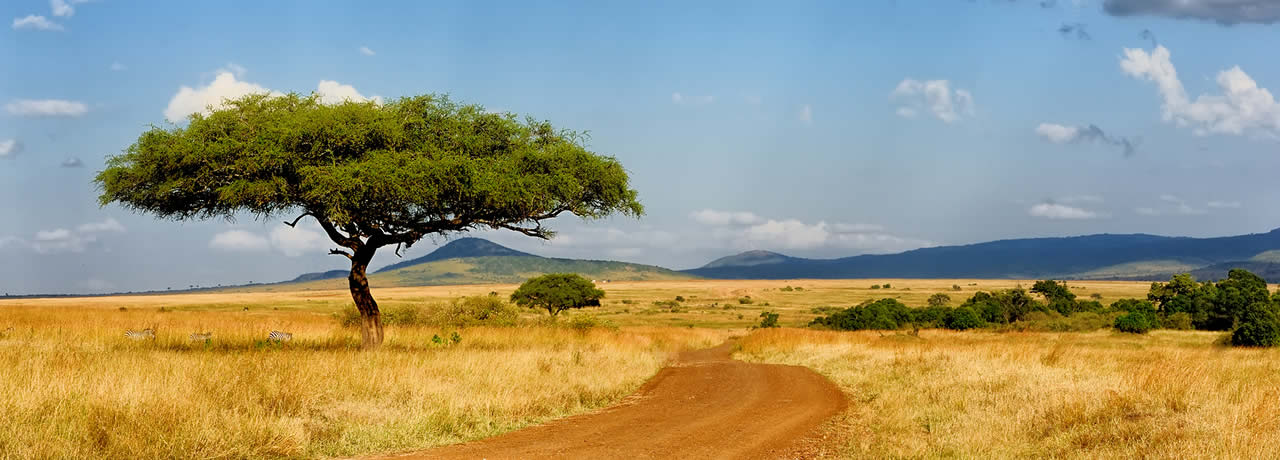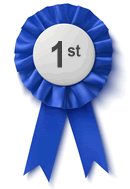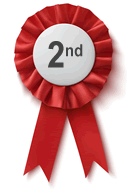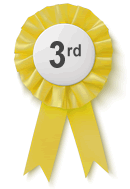
2008 INTERNATIONAL YOUNG ECO-HERO AWARD WINNERS
Meet the 2008 Eco-Hero Award Winners, Young Environmental Activists Leading Innovative Solutions to Global Challenges
With great pleasure Action For Nature announces its 2008 International Young Eco-Hero Awards, which recognize young people 8 to 16 years old for their environmental achievements. We hope the accomplishments of these outstanding young people will inspire many others to preserve and protect the Earth upon which all life depends.
Winners are divided into two groups, age 8-13 and 14-16.
Age Group 8 - 13
First Place
Colin
Age 11
Connecticut, USA
The Cool Coventry Club
Seeing climate change firsthand on a trip to the Galapagos Islands, Colin became concerned about climate health. After viewing Al Gore’s An Inconvenient Truth, he decided to “think globally and act locally.” He said that he decided to launch “The Cool Coventry Club…to educate people about global warming and encourage energy conservation at individual, business and governmental levels.” Colin created a Web site, The Cool Coventry Club, to educate and motivate people to change their attitude and behavior.
Colin has organized 25 CCC events in 10 towns. He presented expert speakers and handed out printed matter about global warming and related topics. He also organized youth and school events, spoke in front of local governments in support of energy policies and passed out low-energy light bulbs
Second PLACE
Nathan
Age 11
Utah, USA
The Anti-Idling Campaign
Inspired by the Step-It-Up Conference in Salt Lake City and the movie An Inconvenient Truth, Nathan started an innovative project, the Anti-Idling Campaign, to help stop global warming and improve the air quality in his community. He enlisted the help of 18 other schoolmates to help him hold up signs before and after school telling parents and bus drivers to turn off their engines while they waited. The campaign has successfully changed people’s habits.
Nathan also took his campaign to the Utah state legislature and lobbied for a bill to prohibit buses from idling and to make school districts adopt a policy regarding bus idling. To date, the bill has passed through committee, but Nathan has yet to hear the final result. As a young person who is interested in air quality, he hopes to travel to other state legislatures to lobby for environmental bills.
Third PLACE
Alec
Age 13
California, USA
Sea Level Awareness Project
When Alec learned that global warming could cause the sea levels to rise high enough to cover a good part of his city, he became concerned. To his surprise, he discovered that many people in his town either didn’t believe in global warming or didn’t understand the possible devastation that could be caused by it. He decided to develop a public awareness program called SLAP (Sea Level Awareness Project) to awaken the city to the threat of a sea level rise. to take action.
“I give presentations to educate youth on the science of global warming and empower them to take action,” he says. “I am now leading a team of 40 kids to make it happen in May of this year.”
Alec built a Web site, kids-vs-global-warming.com, and has given 16 presentations to schools and environmental groups so far. He has designed posters, made videos, met with officials, and started environmental teams at other schools. Alec feels that the more education and knowledge that the public has about global warming, the more they will feel a personal responsibility to take action and support legislation to combat this serious problem.
honorable mention
Benjamin
Age 8
Tennessee, USA
Monarch Butterfly Safe Haven
When Ben read a New York Times article on the decreasing numbers of the migrating monarch butterflies, he became interested in helping them. Monarch are vulnerable to extreme weather changes such as droughts or hurricanes, and are dependent on the prairie grasses and other healthy ecosystems for their survival.
Ben and his classmates turned their school garden into a habitat that serves as a way station for monarchs on their migration between Canada, the United States, and Mexico. The garden provided a safe haven for other species of butterflies, as well as hummingbirds and bees. The school’s efforts increased awareness about the plight of monarch butterflies in the local community.
Ben and his school plan to maintain this garden for as long as possible. Ben says he has learned a lot about nature and is thinking about studying it later in life.
Age Group 14 - 16
FIRST PLACE
Linus
Age 16
Nairobi, Kenya
Clean-up Young Youth Club
Linus, who lives in a poor area in Nairobi, was frustrated by the lack of a waste collection service. Garbage ended up dumped in an open space, creating an unhealthy environment for people. Children, who took advantage of open spaces to play, were especially susceptible to water-based diseases such as cholera and typhoid that bred in these areas.
To tackle this problem, Linus started the Mazingara Safi Campaign, a volunteer club that collects wastes from local households, removes garbage heaps and dumpsites near homes, and drains stagnant water that might breed mosquitos. He raised the funds to provide free polythene bags for easier collection and disposal. He says things are now cleaner because his community if more aware of the issues.
The government of Nairobi still does not give the needed attention to the community’s waste problems, but Linus is working on improving this. He plans to become an ecologist and wants to continue helping people to maintain a healthy environment. When he can establish more funding, he hopes to combine garbage management tasks with tree planting to promote a more beautiful and thriving neighborhood.
First Place
Alexander
Age 14
Rhode Island
E-Waste Solutions
Alexander was appalled by the global crisis of e-waste. When he researched e-waste, he discovered that only a small portion of it was recycled, and that much of it was being shipped to and dumped in developing countries.
“All consumer electronics are a serious threat to human health as well as our environment,” he says. “The heavy metals, such as lead and mercury… will eventually… pollute the groundwater, reaching both the ocean and our own water supply.”
In 2002, Alexander created WIN, Westerly Innovations Network, and started Project WIN ’05 to recycle and reuse e-waste. He refurbished old computers from his high school’s computer class and returned these computers to the local area for everyday use. WIN projects also included running e-waste recycling drives, educating children in schools, educating the community and lobbying for a local and statewide bill banning the improper disposal of e-waste.
Alexander was nominated as the North American representative at the United Nations Children’s World Summit on the Environment that took place in Aichi, Japan, in 2005. He began a new project this year entitled Project WIN ’08: A Green Bridge Across the Digital Divide. Alex is working with partners in Africa to set up Internet cafes and computer centers and is lobbying to build state of the art e-waste recycling facilities in those countries.
Second PLACE
Andrew
Age 16
California, USA
Global Partners: China and USA
Andrew founded Global Partners China-U.S.A. and won Disney grants to do the first-ever joint Global Youth Service Day project between the United States and China. The partnership focused on ways that countries can solve ecological problems together.
On a chosen day, the two groups worked on an environmental project. In the United States, Andrew and his fellow students cleared out invasive species from a wilderness preserve. Xue Ling, Andrew’s partner in China, joined her fellow students in restoring an urban park. The two groups made videos of their efforts and posted them on YouTube.
A large part of their activities involved developing and working with political allies in both countries. In the U.S, Andrew earned the support of Congresswoman Anna Eshoo.
Andrew worked very hard to overcome barriers that exist between the two countries and says, “We’re a new generation that is breaking away from the old, a generation with hope.”
SECOND PLACE
Vania
Age 16
East Java, Indonesia
Recycling and Organic Waste
Vania was inspired to clean up her country after reading a 2005 World Health Organization report naming Indonesia the number one dirtiest country in the world. Her work involves public outreach and education through a series of workshops in the communities and schools in her area, emphasizing the importance of recycling non-organic waste and composting organic waste.
Because Vania enjoys music, she sings about the protecting the environment on stage and shows documentaries about the problems of pollution. She has also written articles about the waste issues to teen magazines to reach her generation. On those occasions when Vania has spoken on the radio, she gives easy tips for at-home composting and recycling.
Vania has had an amazing impact educating people. In the future, she hopes to incorporate the organic compost work into a tree-planting campaign because she wants to do anything she can to hinder global warming.
Third Place
Steven
Age 15
Kampala, Uganda
Rainwater Harvesting
In Uganda, many areas endure long, dry spells where safe access to drinking water is a serious problem. This eco-hero took the initiative to promote harvesting rainwater. In Steven’s community, a single well has to supply water for more than 300 homes, so the competition for water is tough. An individual can often spend up to 45 minutes waiting for water.
Steven realized that the iron roofs on people’s homes provided a perfect situation for water harvesting. He contacted the local business community to raise funds for the demonstration phase of his project which showed people how they could easily install their own harvesting system. He then took his campaigning and posters to public areas around the community. As a result of his efforts, 30 homes have installed a water harvesting system so far.
Through this campaigning process, Steven has learned many practical skills and also has discovered new problems in the community. He says that the next issues he hopes to tackle are waste disposal and hygiene.
Honorable Mention
Wathsaridu
Age 15
Welimada, Sri Lanka
Traditional Farming Methods
The widespread use of pesticides in Wathsaridu’s village was destroying bird species and hurting non-target plant species. He realized that people of his community didn’t realize how toxic the chemicals were, and that they used pesticides as they would any regular household cleanser. The misuse of pesticides led to thousands of people being admitted into the government hospital for various forms of poisoning.
In order to promote an organic approach to agriculture, Wathsaridu learned about the benefits of at-home composting and gardening. With the help of classmates, he spread these ideas through awareness meetings. To jump-start the at-home gardening campaign, he organized a plant giveaway with the government’s agriculture department and handed out some 1,200 plants. He also involved senior citizens by consulting with them on traditional agricultural techniques, such as using yellow plants to keep insects away from fruit trees. Wathsaridu has worked to promote a pesticide-free community and has been very successful.
Honorable Mention
Tehreem
Age 16
New York, USA
Pollution and Health Issues
As the result of an internship at Fox Chase Cancer Center, Tehreem learned about the health dangers caused by pollution.
“My experience… helped me realize what a precarious state our earth is now in. We are all constantly eating, breathing, and, yes, storing chemicals, many of which are suspected to be carcinogens,” she says. “It is now rare to find a person on this earth who does not have chemicals, such as DDT, still in his or her body fat, or, in the case of women, in breast milk. The fact that DDT can still be traced in our bodies, even though it was banned decades ago, shows how these chemicals are even more detrimental due to their persistence in the environment and our bodies.”
Tehreem learned through her work that pollution has been linked to numerous reproductive problems.
Tehreem founded the ongoing project of Long Island Teen Environmental Activists to educate people about the relation between pollution and health issues. She also hopes to inspire her peers and others to take action to maintain and improve their environment.
Commendations
Maria
Age 16
Ohio, USA
Ohio Valley Eco-system
Maria turned a large unused enclosed courtyard at an elementary school into a learning center for native eco-systems. She proposed the project and then organized volunteers and gathered donations. Working with a crew of eager third grade students, Maria helped clear the courtyard of invasive weeds, and, using a bucket brigade, brought in topsoil and mulch. They planted 600 donated native plants and wildflower seeds and created a fishpond with a recirculating water system.
Maria says that this garden is a “miniature, fairly self-sustaining, educational eco-system that teaches the students about the ecology of species native to the Ohio Valley region.”
Cynthia
Age 16
New Jersey
Recycling for Everyone
Cynthia has always had a passion for the environment. When she became president of her school’s Ecology Club, she revitalized the club, took on the pending recycling program and made it a reality.
Cynthia began by fundraising to buy waste containers and bins. She and her peers stood outside stores shaking cans and also returned old printing ink cartridges for the refund money. Once they bought the bins, Cynthia enlisted fellow students from the Special Education department. Including them helped the recycling program and gave the students a feeling of responsibility.
Cynthia has earned the respect of her peers and others, and is seen as someone who made a difference both socially and environmentally in her school.
Dylan
Age 10
Pennsylvania, USA
Kids for Earth
Dylan said, “I want people to know that we need to take care of our planet and its helpless animals. If we continue on our current path, many humans and animals will die and our amazing earth will die. If we all work together we can make a difference and save the earth.”
Dylan created a survey that lets kids check off things they could do at home to help save the environment. He started his project when he was nine and he is “confident that we can make a difference even if we’re small.”
Dylan is working on a Web site and has made a documentary movie that he hopes to put on TV.
Prachi
Age 13
Orissa, India
Saving the Olive Ridley Turtle
Prachi lives in a coastal fishing community and wanted to protect the Olive Ridley turtles that come to lay eggs on the shoreline of during the months of October through December. When the turtles return to the sea, they are often injured and killed by big, mechanized fishing boats from neighboring fisheries. The tide brings the injured or dead turtles back to shore, where the decomposing bodies are not only a sad sight to see, but also present a health danger.
Prachi initiated a local education plan to encourage people to rally against turtle deaths and the neighboring fisheries. She involves children of all ages to join in performances that will help raise money and awareness. She has been active in contacting the government to take more initiative in stopping this problem that adversely impacts the environment and her community.
Delphine
Age 15
New Jersey, USA
Recycling Pioneer
As a young child, Delphine was raised to respect her natural surroundings, protect the environment, and “reduce, reuse and recycle.” So it’s not surprising that she organized the first recycling program her school has ever had. She now leads and implements those recycling practices. Besides raising the students’ and staff’s awareness of environmental issues through news articles and newsletters, Delphine hopes they will now help spread the recycling message.
Sarah
Age 8
California, USA
Tally for Change
Sarah wants to inspire people to live differently by thinking about how their daily habits impact the environment. In order to do this, she created a Web site, www.kidsforourearth.org, that has tally sheets people can use to track their individual progress.
Sarah encourages friends, family, and fellow students to tally the times they reduce, reuse, and recycle. Visitors to the site can download the tally sheets and participate, either individually or with a group. Sarah believes that if people can see their progress, they are more likely to keep up and adopt environmentally-friendly habits.











